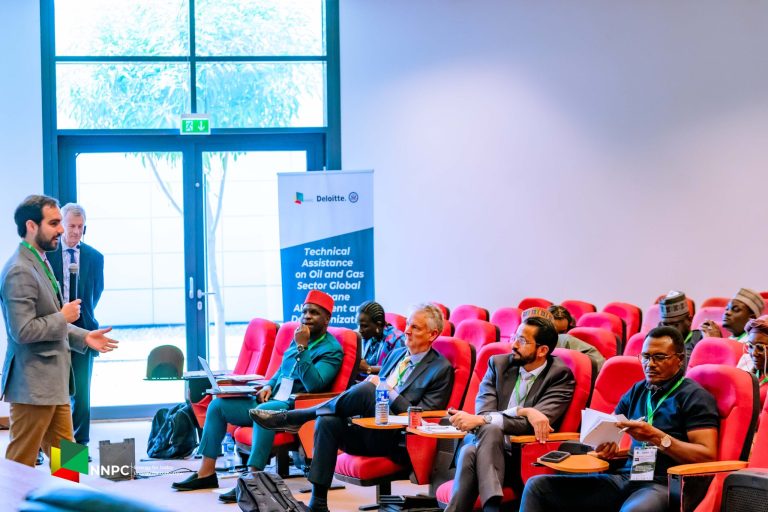The Nigerian National Petroleum Company Limited (NNPCL), Africa’s largest oil company, aims to partner with the United States Department of State and global management consultancy firm Deloitte to address greenhouse gas emissions linked to OML 34.
Mr. Olufemi Soneye, the Chief Corporate Communications Officer at NNPCL, announced on Monday that the project is in its early conceptual stage.
The three-day Technical Assistance on Oil and Gas Sector Global Methane Abatement and Decarbonization Workshop commenced at the PTDF Towers in Abuja.
According to him, the workshop, which was a follow-up to an earlier one held in July 2023, was, amongst other things, aimed at defining the critical success elements of the project.
What NNPCL is Saying
According to the statement, some of the critical elements of the project discussed at the workshop include determining the scope of the project, establishing a baseline for methane and carbon emissions from the selected operation sites, collecting relevant data on the selected sites and helping the Deloitte consultants to understand the operations and expectations of NNPC Ltd.
- “Participants at the workshop unanimously selected OML 34 located onshore in the Western Niger Delta which has the Utorogu and Ughelli Fields as the operation site for the pilot stage of the project.
- “Participants were drawn from relevant NNPC Ltd.’s subsidiaries and Departments such as Exploration & Production; New Energy; Gas Infrastructure; Health, Safety, and Environment, as well as Federal Government agencies like the National Council on Climate Change.
- “The project is sponsored by the United States Department of State Bureau of Energy Resources, Energy and Mineral Governance Programme (EMGP),” the statement added.
What you should know
- Nigeria, the most populous nation in Africa, is a notable contributor to greenhouse gas emissions. Acknowledging the critical need for climate action, the country has implemented various measures to address this pressing issue.
- Nigeria enacted the Climate Change Act 2021, providing a structured approach to attain net-zero emissions by 2060 and introducing a carbon budgeting system.
- Furthermore, the country outlined its Nationally Determined Contributions, pledging a 20% unconditional cut in emissions by 2030 and an additional 47% reduction with backing from the international community.
- For the Oil and Gas Methane Regulations 2023, Nigeria aims to eliminate gas flaring by 2030 and reduce fugitive emissions by 95 per cent by 2050.

